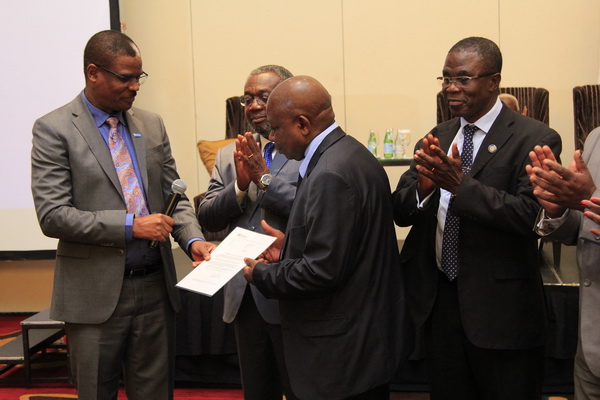
Ghana’s status affirmed as first country in WHO’s Africa Region to eliminate trachoma
The World Health Organisation (WHO) has given a Validation Letter to affirm Ghana’s status as the first country in WHO’s Africa Region to achieve the milestone of eliminating trachoma.
Trachoma is a devastating eye disease caused by the bacterium chlamydia trachomatis and is the leading cause of blindness worldwide.
Advertisement
The disease was identified in the 1950s as the most important cause of blindness in Ghana. By the 1990s, the disease was known to persist as a significant public health problem in the Northern and Upper West regions.
Handing over the Elimination Certificate to Ghana at a ceremony in Accra on Tuesday, the WHO Country Representative to Ghana, Dr Owen Kaluwa, said in 1993, WHO adopted the
SAFE strategy, which comprises surgery for advanced disease, antibiotics to clear infection, facial cleanliness, among others.
He added that in 1996, the WHO also launched the WHO Alliance for the Global Elimination of Trachoma by 2020 (GET2020), a partnership which supports the implementation of SAFE strategy by member states.
Dr Kaluwa said transmission was associated with poor sanitation and hygiene and that affected mostly people in poor areas in 41 countries and it was responsible for the blindness of about 1.9 million people.
It also caused about 1.4 per cent of all blindness worldwide.
Public health problem
According to Dr Kaluwa, Africa was the most affected continent with trachoma being a public health problem in 26 out of 47 countries of the WHO’s Africa Region, and in 2016 an estimated 190 million people lived in trachoma endemic areas, with the risk of getting trachoma blindness.
“Ghana is indeed a trailblazer and the global trachoma community has a lot to learn from the country’s experience. WHO will continue to support other member states in their quest to achieve trachoma elimination as Ghana has done,” he stated.
The Minister of Health, Mr Kwaku Agyeman-Manu, lauded Ghana’s achievement, saying it was no mean feat considering the volume of work that had been done over the years to bring the country this far.
He indicated that the journey had been arduous and the many years of dedicated efforts and commitment by the Ministry of Health (MoH), Ghana Health Service (GHS) and key partners had culminated in the achievement.
According to the minister, Ghana had now become the first country in sub-Saharan Africa to have eliminated trachoma two years clear before the global elimination target year of 2020.
Cost effectiveness
“The elimination of trachoma is cost-effective, yielding a high rate of net economic return and the MoH shall, therefore, continue to work tirelessly through inter-sectoral programmes and with partners to ensure that Ghana’s current status is maintained,” Mr Agyeman-Manu said.
For his part, the Director-General of the GHS, Dr Anthony Nsiah-Asare, said there were intensive efforts to eliminate blindness caused by trachoma in five districts of the previously endemic Northern and Upper West regions.
According to him, by 2003, all the endemic areas and all the communities in the two endemic regions were receiving the SAFE interventions and in 2004 the MoH, the GHS and its partners participating in the programme developed a five-year Strategic Plan to guide programme activities from 2005 to 2009.




